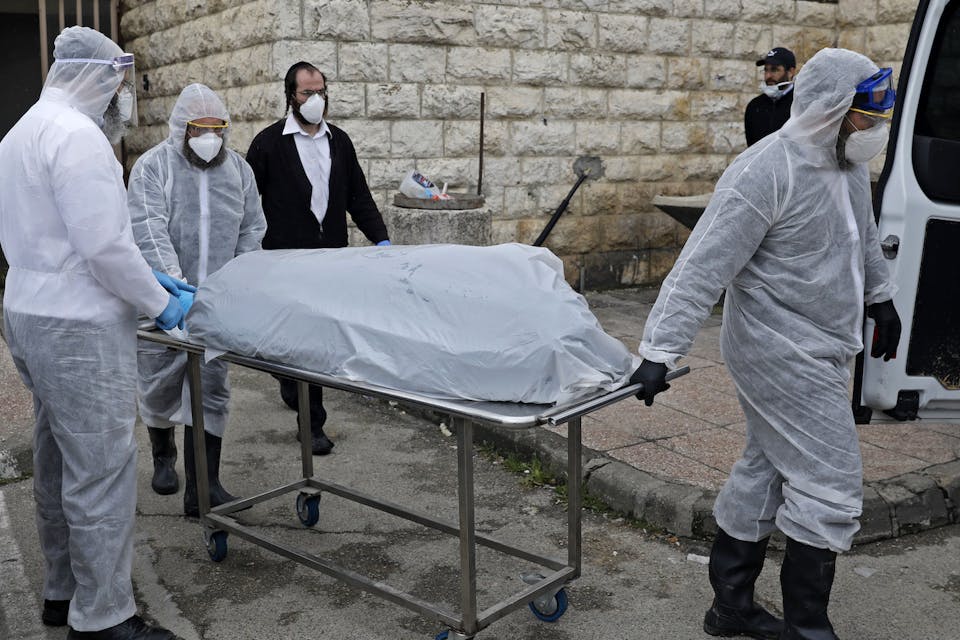
April 2, 2020
Does Jewish Law Oblige Doctors to Risk Their Own Health to Heal the Sick?
Those with greater ability to help are called upon to bear greater risk.
Two weeks ago, a woman came to my home in Israel wearing a hazmat suit and swabbed my family of seven for COVID-19. Thank God, we tested negative. In Chicago, at the very same moment, several other strangers—doctors, nurses, orderlies—were treating a beloved family member fighting the coronavirus. (He has thankfully since recovered). While not wearing full-body protective gear, those caretakers at least had the benefit of masks and gloves—worn not for the benefit of my relative, but to protect themselves from infection.
Not all those treating the disease are so lucky. Across the United States there are serious shortages of protective gear at hospitals, and medical professionals have been falling seriously ill from exposure. The rate of infection for doctors and nurses is increasingly worrisome in Spain and Italy, where some fear it could lead to the collapse of the national healthcare systems. And let us also not forget doctors in China like Li Wenliang, who succumbed to the illness after trying to warn the world of its dangers. Indeed, the rate at which medical professionals exposed to COVID-19 contract the virus themselves poses a grave moral question: given the risks to their own safety, would they be justified in refusing to treat patients, especially if they would have to do without proper protection?
This question is not novel, but the current pandemic raises the stakes considerably. The American Medical Association’s 1847 inaugural code of ethics demanded, “When pestilence prevails, it is [physicians’] duty to face the danger and to continue their labors for the alleviation of the suffering, even at the jeopardy of their own lives.” More recent codes have backed away from such explicit requirements and substituted them with more generic charges to “serve to the best of their ability.” These questions confronted medical ethicists during the early days of the AIDS epidemic in the 1980s, and during the outbreaks of SARS and Ebola in the early 2000s and 2010s. As is true with COVID-19, these diseases were not initially well understood, and scientific knowledge about how they are transmitted was still developing. To make matters worse, the evidence about the coronavirus suggests that it spreads quite easily. Firefighters, law enforcement officials, and soldiers take on their jobs knowing that they might be called upon to risk, or even sacrifice, their lives; not so physicians, nurses, and orderlies. Yet now their work requires them to do so.